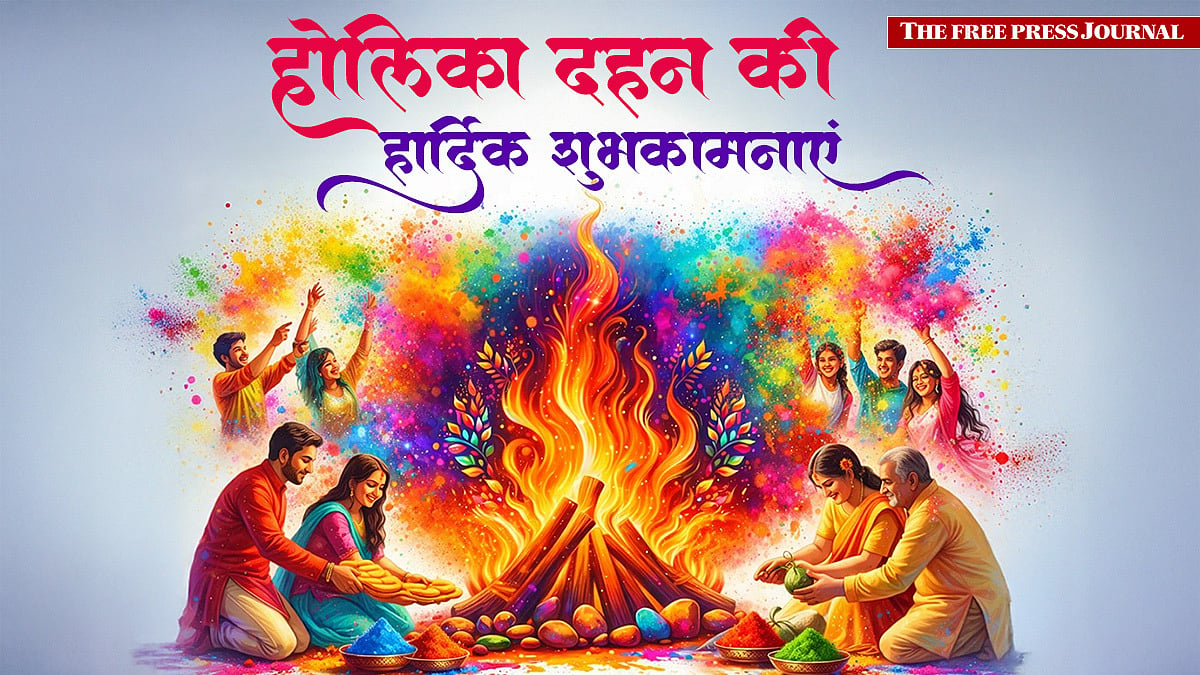International Women's Day is celebrated globally on March 8. The day is observed to celebrate the social, economic, cultural, and political achievements of women. We are proud of many global figures across generations, who have paved the way for women over the years. Yet now is the right time to reflect on the past and honour the women who sought to follow a spiritual path.
"Advaita" the musical journey, celebrates the spiritual path of enlightenment and divine love led by the seven women saint poetesses: Andal (Tamil Nadu), Akka Mahadevi (Karnataka), Janabai & Muktabai (Maharashtra), Gangasati (Gujarat), Mirabai (Rajasthan), and Lalleshwari (Kashmir).
The event, conceptualized by classical singer Devaki Pandit and scripted by award-winning writer Vaibhav Joshi will be held on March 4th, 2023, at the Nehru Centre Auditorium, Worli, Mumbai.
FPJ got a chance to interview Devaki Pandit about her performance at the event, classical music, her journey, the evolution of music, the current training scenario and much more...
Pandit who started off with Hindustani classical music has sung for varied genres as a vocalist ranging from film music, ghazal, and bhajans as well as fusion. Pandit has received IMA Young maestro award at the hands of ex-President Dr. APJ Abdul Kalam. She has also been awarded with various prestigious awards like the Aditya Birla Kalakiran Puraskar, Maharashtra government award for best singer, Zee Gaurav Puraska, etc.
Excerpts from the interview...
What will you be performing at Advaita?
As the idea of Advaita was to celebrate all the women Saints together and reach out to audiences who spoke diverse languages, connecting with varied audiences posed a challenge. Hence, I will perform some parts of the original poems following the Hindi version for the benefit of the rest of the audience.
Renowned poet, award-winning lyricist, and author, Vaibhav Joshi trans created all the devotional poems in Hindi that hold the fragrance of the original poetry's beauty as well as its deeper meaning.
The music and the variety of instruments used in the performance depend upon each of the birthplaces of the saints. For example- Sant Aandal Thiruppavai is sung in a Carnatic Raga and taal, sant Meerabai bhajans are composed in Maand raag, Janabai is sung in typical Marathi abhang style, and so on. Kashmiri instrument Rabaab is used for the rendition of Vaakhs (sant Lalleshwari). Mridangam for sant Aandal and sant Akka Mahadevi, The rhythmic patterns and the music is also designed bearing the original form of music in mind.
How have these female poets inspired you in your journey as a classical singer?
Maharashtrian female saints- Janabai, Muktabai, Bahinabai, Sohira bai, and Venna swami, to name a few have really inspired me. I frequently present their Abhangs in my classical performances. These women seemingly defied society and its norms and liberated themselves as only true selfless 'Love' can. They have paved the path for all women folk to find strength and tread the path of Bhakti.
Do you think, women poets and classical musicians have been given less space in literature?
It is excellence that gives any artist his or her definitive space in the field of music. In their own regions, the devotional songs of the female saint poetesses are well-known. Even now, Sant Akka Mahadevi's vachanas and Sant Lalleshwari's Vaakh are sung in Karnataka and Kashmir, respectively. Their poetry hasn't been extensively sung throughout Bharat due to the varied languages, nevertheless. In other words, devotees who speak Kannada do not comprehend Kashmiri, and vice versa.
While, biographies have been published about the lives of famous figures and geniuses like Anjani bai Malpekar, Kesarbai Kerkar, Gangubai Hangal, Mogubai Kurdikar, and Kishori tai Amonkar to document their contributions to the realm of music.
For the last two decades, classical music has highly been fused with western music, how do you see this change?
Since the world has become smaller over the past few years, every element of our lives—including music— has been impacted by this phenomena. Indian and western music fusion has long been a hugely popular genre. Fusion, however, does not mean giving up your creativity; rather, it should imply combining different musical viewpoints to create a singular, richer musical experience.
Who has been your source of inspiration as a classical musician?
My gurus and their music have always inspired me. I have also drawn influence from renowned musicians like Pt. Kumar Gandharva, Bharat Ratna Pt. Bhimsen Joshi and Lata Mangeshkar, and Ustad Zakir Hussain that I did not personally study from.
Tell us about your journey as a classical singer over the years?
My mother first introduced Indian classical music to me because I was raised in a musical home. Pt. Jitendra Abhisheki and Gaan Saraswati Kishoritaai Amonkar, two illustrious gurus, have bestowed their blessings upon me. I trained with Pt. Vasantrao Kulkarni for my first few years- who provided me with a strong foundation. Afterward, Pt. Babanrao Haldankar later provided advice.
I have performed at the majority of domestic and international conventions and venues for Indian classical music. As a vocalist, I have performed in a variety of musical genres, including cinema music, ghazals, bhajans, and fusion.
As a composer, I have composed 'Tana Riri' a theme based on the great Mian Tansen's bandishes in Raag Malhar and designed & presented theme-based concepts like ‘Avani’ the Earth and; Devi ‘the Divine feminine energy.
Since I hold workshops on Indian music both in India and abroad, as passing on my musical knowledge to young, gifted students is an essential part of my journey.
How do you think music has evolved over the years?
Hindustani classical music is ever-evolving and it embraces newer sound values yet be grounded in deeply entrenched classical values (Tatwa). The artist’s perspective of the Raaga rendition allows a flow of individual thought to assimilate with the traditional framework of the Raaga. The individual artists’ perspective evolves with maturity and musical experience (swaranubhav).
How about the training scenario? Has it changed?
The learning process has changed with time, and the teaching method has had to adapt to it. Today, the budding musician has already been exposed to a variety of musical genres thanks to easy access to all forms of music. Although I think the Gurukul padhati is the ideal approach to learn classical music, it is not practical nowadays. As a result, music classes, colleges, and universities have replaced the Gurukul system of music instruction.





